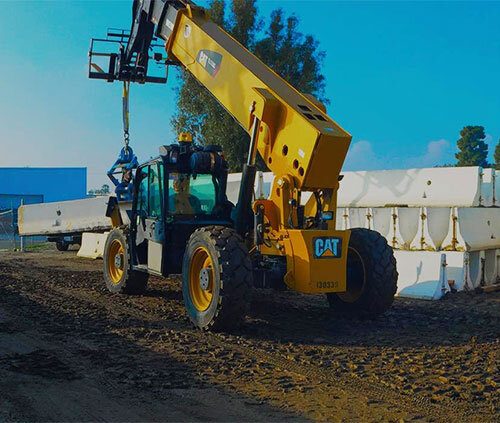Mini Excavator Rental: Compact Machines for Tight Spaces
Mini Excavator Rental: Compact Machines for Tight Spaces
Blog Article
Maximize Your Budget by Comprehending the Expenses Related To Construction Tools Leasings
Comprehending the complete scope of costs connected with building and construction equipment rentals is vital for optimizing your budget. What techniques can be utilized to successfully take care of these costs and ensure a much more effective rental experience?
Introduction of Rental Costs
When taking into consideration construction tools rentals, recognizing the associated expenses is paramount for efficient budgeting and task planning. Rental prices can vary substantially based upon a number of variables, including equipment kind, period of rental, and area. The preliminary rental fee typically reflects the devices's market need and its associated operational capacities, affecting the overall cost.
In enhancement to the base rental rate, supplementary expenses might arise, such as transportation charges, gas surcharges, and upkeep charges. It is vital to make up these additional expenses to precisely examine the complete price of renting devices. Moreover, the rental duration can influence pricing; longer rentals may qualify for reduced prices, while temporary services could sustain greater day-to-day costs.

Malfunction of Rental Rates
A detailed understanding of rental rates is vital for professionals and project managers intending to enhance their budgets. Rental prices for building and construction devices normally include several components, consisting of base rates, time-based charges, and use charges.
Base rates are the core costs linked with the leasing of the equipment, often established by the kind and size of the equipment. These prices can vary dramatically, affected by factors such as tools demand, accessibility, and local market patterns. Time-based costs, which might be daily, weekly, or monthly, serve to suit different task timelines and rental durations.
Additionally, rental prices may consist of usage charges, which apply when tools is used past a defined limit, making sure that the rental company can make up wear and tear. Seasonal need fluctuations can additionally affect rental prices, with peak construction periods generally regulating greater costs.
In addition, comprehending the rental firm's policies relating to upkeep and insurance coverage can give additional understanding right into the overall expense framework. By evaluating these parts, professionals can make enlightened decisions, guaranteeing the option of rental equipment lines up with both task requirements and budget plan restrictions.
Added Fees to Think About
Comprehending the intricacies of added costs is crucial for professionals to handle their total service expenditures effectively. Beyond the basic rental rates, various supplemental fees can considerably affect the total cost of equipment rental. These fees frequently include distribution and pick-up fees, which can vary based on range and logistics entailed in moving the tools to and from the task site.
Furthermore, some rental companies might impose gas surcharges if the equipment is returned with much less gas than when leased. It is also crucial to understand prospective cleaning costs, specifically for specific equipment that calls for complete maintenance after usage.

Thoroughly assessing the rental contract and clarifying these extra fees ahead of time can assist contractors stay clear of unexpected prices and guarantee that budgets continue to be intact throughout the job lifecycle.
Maintenance and Fixing Expenses
Routine repair and maintenance costs are often forgotten variables that can significantly influence the general price of building tools rentals. When leasing devices, it is crucial to think about not just the rental fees however likewise the potential expenses linked with keeping the equipment in optimum operating condition.
Numerous rental firms consist of basic maintenance as component of the rental arrangement; however, much more unanticipated breakdowns or comprehensive repair services can bring about additional expenses. It's vital to assess the rental contract carefully to understand what maintenance services are covered and what obligations drop on the tenant.
In addition, tools that is not properly maintained can lead to inefficiencies on the job site, mobile concrete batching plant potentially enhancing and triggering delays project costs. To mitigate these risks, it is advisable to conduct normal examinations and keep open interaction with the rental copyright pertaining to any kind of problems that develop during use.
Insurance and Responsibility Prices
Insurance coverage and obligation costs are critical parts that click site can dramatically influence the general expense of building and construction tools leasings (equipment rental company). These prices make sure that both the rental company and the customer are secured from potential economic losses occurring from accidents, damages, or theft throughout the rental period

Additionally, customers should understand any deductibles or exclusions in the insurance plan, as these can affect possible out-of-pocket expenses. Recognizing the conditions of any type of insurance policy coverage is important to stay clear of unexpected expenses. Eventually, budgeting for insurance policy and liability costs can aid ensure a smoother rental experience and safeguard versus economic risks associated with building tasks.
Conclusion
In final thought, a detailed understanding of the costs connected with building equipment services is crucial for reliable budget plan administration. Inevitably, notified decision-making concerning tools services contributes to the overall success of building and construction ventures.
Rental costs can differ substantially based on several factors, consisting of equipment kind, duration of service, and place (aerial lift rental). The rental period can impact prices; longer rentals might qualify for affordable rates, while temporary leasings may incur greater daily costs
By conducting thorough research study and involving with reputable rental business, contractors can successfully navigate the complexities of rental rates, ultimately optimizing their financial resources.
Past the conventional rental prices, used compact wheel loader different auxiliary fees can significantly influence the overall price of equipment service. Rental business often supply obligation insurance coverage that covers injuries to 3rd celebrations or damages to residential property, while equipment damage insurance policy can cover the cost of repairs or substitute if the rented out tools is damaged.
Report this page